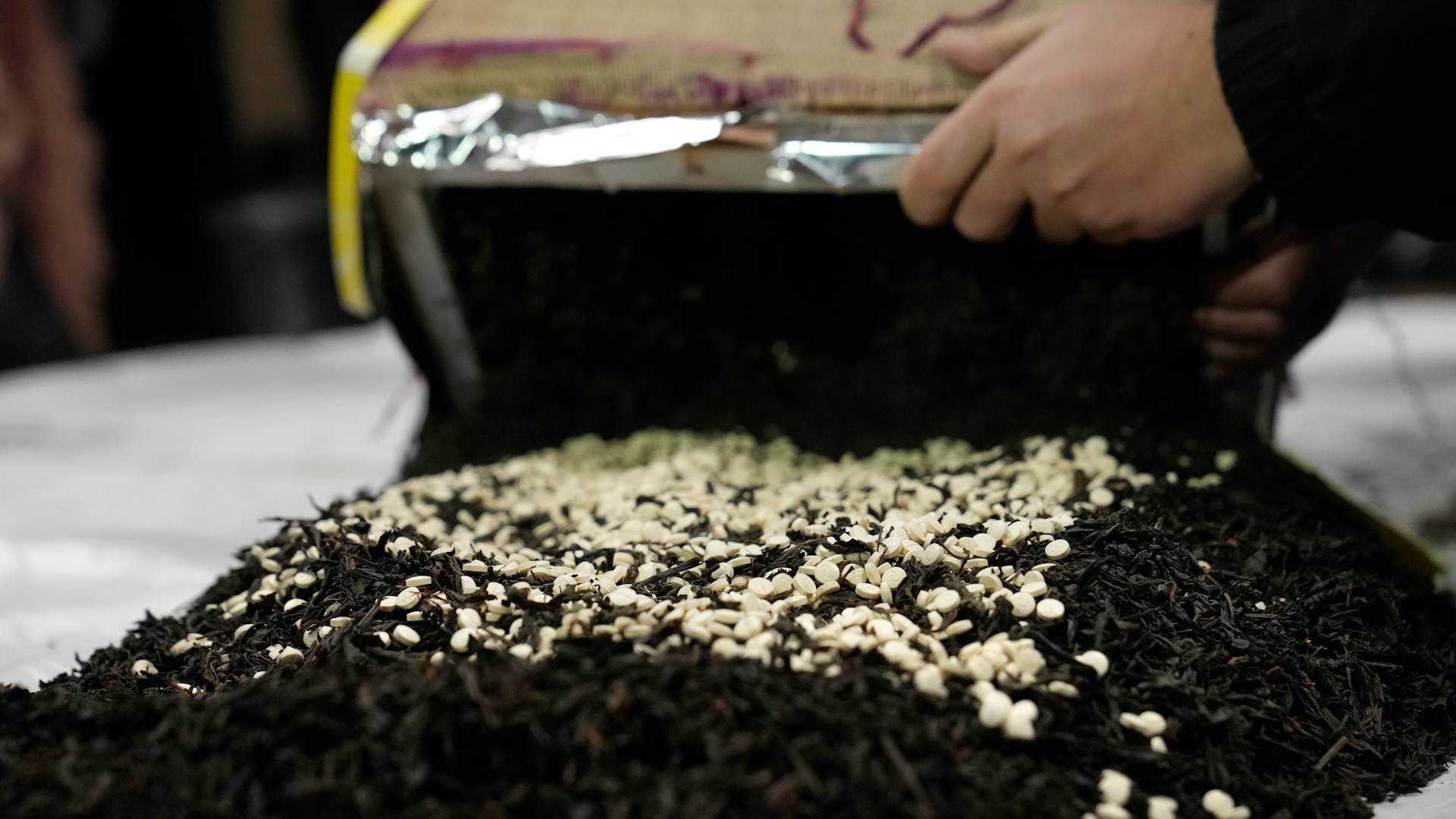Over the last decade, a new drug called Captagon has flooded the Middle East, and Syria seems to be at the center of its production.
Soon after the start of the war in Syria, the Middle East has seen a surge in the trafficking and consumption of a methamphetamine-like drug called Captagon, with Syria at the center of its production.
Reports suggest that the Syrian government became involved with producing the drug after U.S. and EU sanctions cut off other avenues of funding, but the government has repeatedly denied it has any role in the drug's trade.
Syria's reentry into the Arab League has brought the issue of Captagon production into focus, with Syria agreeing to combat drug trafficking across its borders, but the situation remains complex.
Experts suggest that to curb Syria's alleged involvement in the trade, Assad would need to resume legal trade and sanctions would need to be lifted, providing an alternative source of income.

Confiscated amphetamine Captagon pills which were hidden in 434 boxes mixed with seven tons of tea for export, are put on display at the Lebanese police headquarters, in Beirut, Lebanon, Tuesday, Jan. 25, 2022.
Confiscated amphetamine Captagon pills which were hidden in 434 boxes mixed with seven tons of tea for export, are put on display at the Lebanese police headquarters, in Beirut, Lebanon, Tuesday, Jan. 25, 2022.
The U.S. and EU refuse to normalize relations with Syria without a fair election process, and some Arab nations oppose reintegrating Syria without any conditions.
Experts believe that Assad is unlikely to give up the lucrative Captagon trade, which has revenue believed to be multiple times greater than that of Mexican drug cartels.
For more, check out our exclusive content on CGTN Now and subscribe to our weekly newsletter, The China Report.